Healthy Ageing
Well, by this time in your life you should hopefully have had two stages of balanced life. When you retire it will be like starting all over again. It will be a major shock to your habitual system and making adjustments will be hard.
Initially most people spend their initial period doing all the things that you couldn’t do whilst working. But after a while you will achieve those short-term goals.
The next part can be as difficult as working – that is planning your life, schedules, creating new habits and interests. Organising a busy retirement can be hard work and require a lot of effort. The easy thing is to stay in and watch TV and not to socialise.
The lifestyle indicator now is totally in your control so you can develop a plan containing healthy eating, regular exercise, socialising and new experiences and locations. Also developing interests with other people.
More and more people are turning to technology to communicate and keep in touch. In the recent Covid-19 crisis many people over 70 who were asked to isolate took more time out to learn technology on their computers and phones in order to stay in touch with loved ones and family and friends.
Here are some initial thoughts about healthy ageing. GO!
Here are some facts and stats about healthy ageing. GO!
You hear about the ‘golden years’ – what are they? GO!
As you get older yo have to decide when or if to retire. GO!
See how you can achieve your golden years GO!
If you want to achieve your golden years, you’d better start planning. GO!
You should aim to stay fit and healthy GO!
As you grow older you should try to remain young at heart GO!
Keeping a young outlook involves keeping the right company GO!
Some examples of how people have started living the dream GO!
As you get older, there are some things you must attend to GO!
As you get older it’s possible you’ll need a helping hand GO!
One good thing to do as you get older is write your memoirs GO!
At the end, when it’s time to go,what next? GO!
We have a testimonial GO!
What next? GO!
Some stuff you might like? GO!
Some Initial Thoughts

A view of life
As you get older things start to change, and sometimes this isn’t what we’d planned. We can start to become infirm and need more care, and it’s important that we have someone to look after us.
“As you get older three things happen. The first is your memory goes, and I can’t remember the other two.”
Sir Norman Wisdom

Ageing and health
WHO defines healthy ageing as “the process of developing and maintaining the functional ability that enables wellbeing in older age.” Functional ability is about having the capabilities that enable all people to be and do what they have reason to value.
People worldwide are living longer. Today most people can expect to live into their sixties and beyond. Every country in the world is experiencing growth in both the size and the proportion of older persons in the population.
- Between 2015 and 2050, the proportion of the world's population over 60 years will nearly double from 12% to 22%.
- By 2020, the number of people aged 60 years and older will outnumber children - younger than 5 years.
In 2050, 80% of older people will be living in low- and middle-income countries.
The pace of population ageing is much faster than in the past.
All countries face major challenges to ensure that their health and social systems are ready to make the most of this demographic shift.
Facts about healthy ageing
68.5 is the average age for a heart bypass operation
68 years old is the average age a person is diagnosed with stomach cancer
Age of a person in the UK stop working in full time occupation. ITM survey
Income of over 50s retired income, compared to earned income of £2,375
of people in the 60-79 year old age group still report having sex on a regular basis. (Promescent)
Of surveyed women average age 64 said they were in a sexual relationship EDH.
By 2030, the number of people over 60 will have increased to 1.4 billion or 16.4% of world population and by 2050, it will have increased to 2.1 billion or 21.3% of the global population. WHO
The number of centenarians living in the UK has increased 85% in the past 15 years (ONS,
2018f).

What are the Golden Years?
The golden years we assume are those periods when the stresses of work life are reduced or the financial burden on people have reduced. But it isn’t always the case. There is an assumption after 40 years of working that you have lived a life and are wiser and smarter, reduced your indebtedness and have banked some cash or have a decent pension. The problem with most people is when they are making good earnings, they tend to spend it, especially in the UK because we are a nation of borrowers and not savers.
Golden years mean different things to different people. In fact, some people say that all your years are golden or you should try to make them golden. People say I’m going to go on holiday every other month and enjoy life. Most people after a few years of going on holiday and drinking fine wines and food often look for something else more stimulating and fulfilling. The usual outcome of this lifestyle results in obesity and gout!
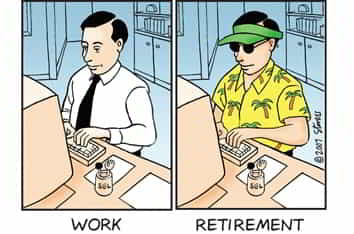
Retire or work?
Let’s get real - people in their 60s and early 70s is most would carry on working in some capacity or other if they thought they could dictate their own hours, days and who they work with. Often, if you love your job and the people are around you are great then people don’t want to leave or retire and the chance to carry on in a more flexible role would be jumped at.
Today many people in their 60s think they are too young to retire and stop working, stop the drive and thrust of working and the stimulation of working with others, especially those who enjoy their jobs. In fact, these types consider they are in their golden years because they don’t need to work but do for the enjoyment and companionship. On the other hand, there are those who don’t like their jobs, never really liked their jobs, hate the people they work with and can’t wait to finish work and retire. 12% of retired people experienced loneliness in the year.
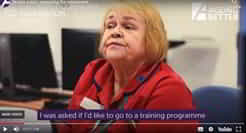
How to achieve the golden years
There isn’t an exact path or strategy to achieve the golden years.
Everyone is different. One person will spend every other month holidaying on a foreign beach whilst another will work full time in an animal charity shop knowing they are giving something back.
Some people volunteer to work in third world countries and at the same time enjoy the aspect of living a new life in a foreign country.
Click the picture for a video with Nora's thoughts on retirement.

Better get planning then
For some just carrying on working doesn’t really require a lot of planning, you just carry on; but if you are one of life’s lucky people who really enjoy their work then you need to start planning the last quarter of your life.
Take a look at RetirementDrive for all the options and ideas for later life changes.
20% of retired people in the UK have mobility disability. Nobody wants to get to 70 and find themselves disabled as a result of a lifetime of excessive sports activity, repetitive strain injuries and gout, especially if the person is very active mentally as well as physically. So take care of your body and avoid excessive anything when you are younger.
Better healthcare and living standards mean more people are living longer. When the NHS was founded 70 years ago, people lived an average of five years beyond the state retirement age. Even with a higher pensionable age, that average is now 15 years. The Government said we need to support older people to stay healthy, active and independent for as long as possible.
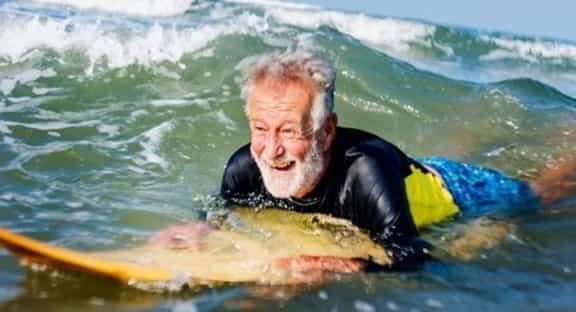
Staying fit and healthy
Staying fit and healthy has never been more important. Trying to keep fit and keeping to a good weight helps a lot. Making sure you eat a real balanced diet of food each week. Staying fit and walking, jogging, swimming, or recreation clubs are a great way of meeting people as well as keeping fit. Regular exercise improves cardio vascular areas, helps digestion and can stave off dementia..
Hydration is vital when you’re getting on
Start drinking mineral or spa water or filter tap water. Just look at your garden to see the difference – we water our gardens from the tap and the plants, trees and shrubs survive but don’t really boom, but the moment we get 2 days of rain the vegetation comes alive. Imagine that’s what it can do for you. Check our WaterDrive. Medical professional say dehydration can be a killer and lead to a multitude of different ailments all that can have serious consequences.
FitnessDrive provides information on staying fit, and WaterDrive provides information on staying hydrated. There is a Daily Express article on how exercise can stop dementia
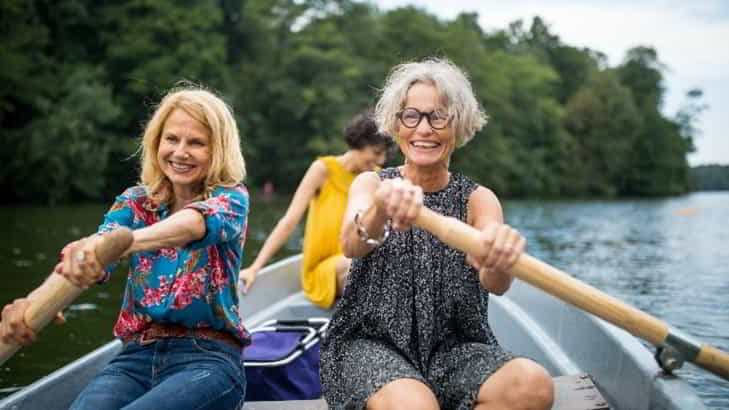
As you get older, what can you do to stay ‘young at heart’?
If you think you’re old you will be - Positive Mental Attitude.
PMA – positive mental attitude. If you talk to people in their 90s and ask them the secret to a life, they say stay positive and never give in to old age. When you get old you ache more, get tired quicker and don’t have the energy you used to have but that doesn’t mean you need to give in and sit in a chair for ever and a day. Keep active and focused on a sport or pastime and when you feel down, get up and get going. Force yourself to get moving and don’t let it debilitate you.
One of the many things we forget about is our age and sometimes physically overdoing it can cause a few issues. Pacing yourself and making sure you stop for regular drinks and a snack to keep up your blood sugar level and energy is good. As we get older the body can lose energy faster and it can be harder to recover therefore take care of yourself and heed the warning signs.
See a BBC article on gardening and how it could help you live to 100 here

Having a cup half full attitude makes all the difference
Naturally age does bring with it medical conditions and it can be very draining mentally and physically. It’s good for family members to remember this and try to keep older parents positive and help create a positive environment. Understanding and patience are critical in supporting elderly people. Remember you have no idea how it must feel to be old when you’re younger. The thought you are in the last part of your life can often feel depressing for some. Supporting elderly relatives, getting them involved in the family and looking after grandchildren helps them take their minds off their situation and give them something else to focus on; often just feeling your needed for something is enough to lift someone’s spirit
Married to a cup half empty retired person?
If you have a young mind and a cup half full attitude on life you are doomed to a life of frustration if your partner has an old mind and a cup half empty attitude.
Divorce rates in the UK
55- to 64-year-old 43% those 65 to 74 years at 39%. For adults ages 75 or older, the rate is lower at 24%. Why would people spend a lifetime together and then get divorced? Some people live together during their working life and have children and stay in the marriage for the sake of the children. Others made it to retirement because they spent most of their lives working and living and actually didn’t spend that much time together, but when retirement comes, they are both together 24/7 and they may not even like each other at all.
Is it a problem being married to an opposing person who sees life as half empty and has an old-fashioned brain and basically has retired and is now waiting for God? Brain age is covered in MindDrive.

Do you have a young mind and outlook?
Some people in their 60s and 70s have a very young brains and outlook and often cannot relate to people of their own age. They don’t think great I’ve retired time to take it easy, they think I’m free to do so many things I couldn’t do when working, no shackles at all and now is the time to really live my life. Whilst some old-fashioned retired minds are planning out how many cars they will need before they give up driving all together to modifying the garden to make it easier to maintain or even moving house to be closer to bus route or closure to shops so they won’t need a car..
Cup half full don’t even mention the words pensioner, cup half empty constantly reminds you they are. Some celebrate that they don’t need to pay for medication any more whilst others see it as another nail in the coffin. Some mean pensioners relish the free bus passes whilst others see it as a stigma on age. Cup half full are always planning the next project no matter how small whereas the
Cup half empty won’t accept visitors on a Monday as this is wash day.
Mentally young people
Those people who have PMA and a positive outlook on life tend to push themselves more; stimulating physical and mental activity. Trying to stay young and youthful. They tend to mix with people who are younger than themselves as this is where their brains feel most comfortable and they gel with people at a younger age group whereas those retirees with old mindsets shy away from younger people and noise and look for people with a similar mindset in the opposite direction in order to share illness records, talk about life when it was better and swap funeral plan ideas.


Keeping your brain fit and active
Many medical professionals say keeping the brain active is essential to having a healthy old age. If you can have mental and / or physical activity such as playing bowls, darts, badminton, snooker or golf, it provides great stimulus needed to keep healthy. Getting involved with young people or looking after grandchildren, other children or helping out at school keeps you feeling young and vibrant. Joining a youth club as a volunteer can be so rewarding for young and old; passing and sharing information between the ages is great.
Try some of these top tips for keeping your brain in tune.
WebMD say that activity keeps your brain sharp here.

Live the Dream - Some real-life examples of what you can achieve
We mentioned earlier that the golden years differ for everyone and everyone has a different view on life and the quality of life. You see lots of articles about living the dream of retirement, using wonderful looking models walking on a tropical beach etc which is often not reality. But below are some examples of people who have done their own golden years.
Some real life examples
Click on any of the tabs on the right to see more information

Live in Leeds and have a 3 bed bought council house which they rent out to their grandson and his partner. They bought a Mobile home in Portugal on a site 200 meters from the beach. They banked the rest in savings and reduced their outgoings by half.

Sold their house in the Midlands and paid for a granny extension on their son’s house. With the remaining amount of money the couple bought a small cottage in northern France for them to live in for 9 months of the year and give their children and grandchildren a holiday home.

Live on the south coast of England and rented out their home on a short hold tenancy for £1,200 a month. They moved to southern France and rented a small cottage on a vineyard for £400 a month saving £800 a month. This enabled them to spend a month in Australia touring in a camper van every year.

Single man lost his wife and decided to rent his house out in Rugby at a cost of £1,350 a month. He moved to Bologna region and rented a small cottage for £350 a month. He saved over 1000 in savings. With this he purchased a VW campervan and renovated it and started using the French base to tour Europe as he and wife used to do. The extra income has doubled his government pension.

Couple retired and inherited their mothers 2 bedroomed flat in London. They rented the flat out at a cost of £2,500 a month. The net after costs was £2,000 a month. They decided that they would go every 12 weeks to a different long haul holiday destination for a month. It cost them nothing really and they enjoyed a lavish lifestyle.
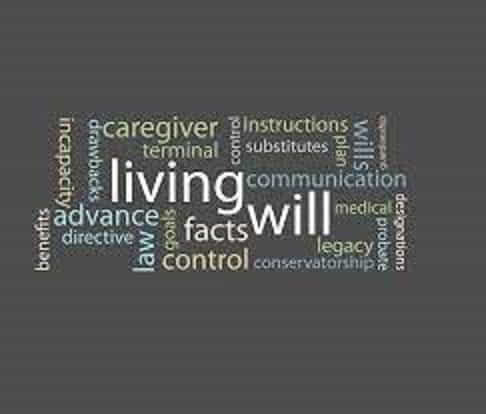
Living Will - When do you need to think about slowing down, and what are the ‘must do’ things to address?
The Living Will
We never know what might happen – what if we are struck down with a debilitating illness that stops us from communicating effectively, or what if we become unable to make decisions?
Unless we say in advance what we would like to happen, our desires and wishes in this case might include decisions being made by other people which you would not have wanted.
A Living Will – often called an Advice Decision or an Advance Statement – is simply a set of written instructions setting out all the things you want to happen – a simple set of instructions such as where you want to live, how you want to be cared for and who will be placed in charge of your financial and personal affairs.
You should discuss it with family beforehand – it becomes even more important if you have no family, as social services would then decide.
When it’s done you can keep it safe and amend it whenever you are able or you may get family members to update it.
Click on any of the tabs on the right to see more information
Keeping the document safe along with your full will with perhaps an executor provides you with peace of mind. When considering a living will if you have no family you may need to appoint an advocate.
The NHS have information on Living Wills – see information here.
Compassion in Dying provide information on how to set up a Living Will – see more here.
You can do this online by using their website here to complete the form and then you will have to print out the forms and sign them, and get them witnessed.
You can also download the forms from their website here – you will need to set up an account using an email account and password.
You can also phone them on 0800 999 2434 or email them at in**@co***************.uk and they will post a form out to you.
As part of your Living Will you may need to nominate a advocate who will speak up for you and take your wishes into consideration when discussing matters with social services or local councils. An advocate could be a friend or distant relative or a group. See below the links to learn more.
VoiceAbility have information on advocacy here.
The NHS talk about advocacy here.
Community Care have tips for working with advocates here.
You may have family member you trust, in which case you should indicate in your Living Will a power of attorney. There are different types of power of attorney and you need to discuss the options with your family. Setting up a power of attorney gives you peace of mind so you don’t need to worry about financial matters and everyday occurrences that may be stressful or confusing.
The Sue Ryder charity describe power of attorney here.
The NHS cover it here.
AgeUK cover it here.
Dealing with social services can be daunting especially if you are suffering from an illness that restricts you mentally or physically. Having an advocate, Power of attorney executive or a family member on hand can make life much easier. Within social services they will want to assess your needs under what they call Best Interest and come up with a support plan which is agreed with everyone.
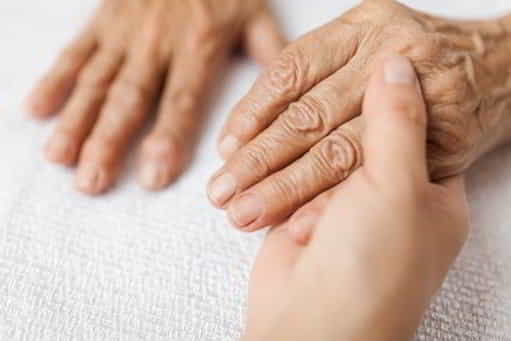
Helping hand - as you get older, you might need to think about what help you might need
When you need a bit more support.
We will get to a stage in our lives when eventually we need more support to enable us to maintain our independence. There are so many support organisations that can come into your home to help you on a morning or provide meals etc. Guarding our independence is important to us, but if there are services there that can help why not take advantage of them?
Moving in or extending a relative’s house to create a senior one bed apartment can be a big advantage. This allows you to retain your independence but there is someone on hand to give the support if you need it. Keeping your independence as long as you can is obviously what everyone strives for but there may come a time when you need sheltered housing where there are professionals on hand who can give you more specialist medical support that a relative cannot. These housing complexes are often just like living at home but with support 24/7.
The NHS have information on housing options as you get older here.
Sheltered Housing
This is where you want to live independently but need some support. It’s normally available to over 55s only. and has support, from a warden normally, and 24-hour emergency help.
You can rent or buy sheltered housing, and these complexes aren’t rated and vary.
You’ll have to pay rent or mortgage payments, and also council tax, utility bills and normally a regular service charge, which covers cleaning, support and repairs.
AgeUK have some factsheets you can download below.
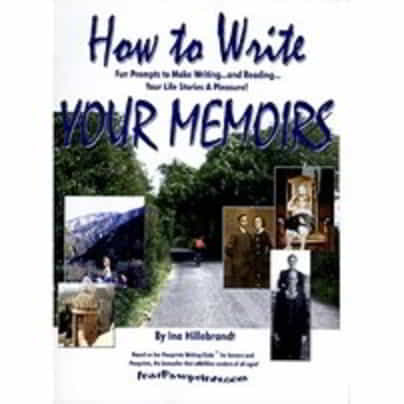
Write your memoirs
The world is continuously changing and as a more senior person you have the benefit of having lived a life and have a wealth of life experience to share with others, so jot down your memories not just for your family but for others who may in the future read all about your life and experiences.
You might think: “Me, write down my memoirs, I am not famous!”. Well you would be surprised to know you are to your family, and when you go you’re taking a lot of history with you. The world is continuously changing and as a senior citizen you have the benefit of having lived a life and you know history, both the good and bad bits. You have a wealth of life experience to share with others so jot down your memories – not just for your family but for others who may in the future read all about your life and experiences. Your descendants in generations to come will take great delight trying to understand who you were, what you was like, your personality and traits.

Finally, there comes a time…
We’re not getting into this, as people’s views are VERY personal and private. For those left behind
Inevitably we all have to leave this world and for those left behind they have to cope with life. The memories, the habits, the loss is often hard to cope with. During the first few years of loss there is a roller coaster of emotions which can be very hard to manage. A loss can occur at any time and under differing circumstances leaving people shocked, grieving and unable to cope with the loss. There are organisations available to help.
The NHS have advice here.
Mindzone have a real story about dealing with grief on the loss of a parent – see here.
Focus on the Family have a section on Coping with death and grief as part of their Life Challenges series here.
Cruse Bereavement Care offer training here – look in particular at the loss and bereavement training.
For visitors
Why don't you join us?
You can register to join us as a member, when you’ll be able to download our stuff and comment, or as a YouDriver when you’ll also be able to check your health and set up your own action plans to make some improvements. If you’ve already registered, sign in below. Or let us know what you think.
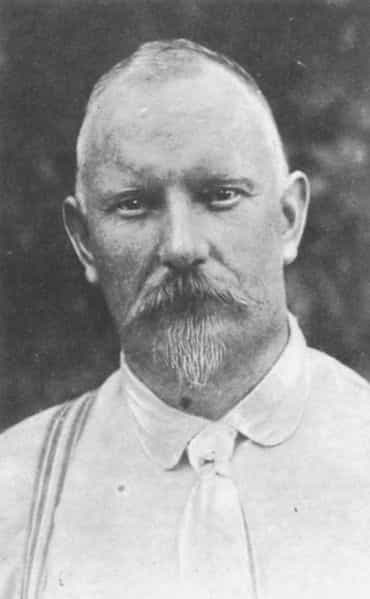
Next Steps
It doesn’t matter what stage you’re at – it’s important to be the best you can be. At the end of the day it’s about taking personal responsibility – You Drive!
It’s really your choice. You can find out more information about the subject, or see other institutions that can help by going to Support. There you will find organisations, training, coaching, self-help courses and other items to support your personal change. We have also started developing a panel of experts to provide info, advice, help and support.
Get Support
There are times when you need some help to meet your aims – a helping hand. That might be an organisation that can provide you with some help, some specialised information, a particular book or tool to help, or just getting some background reading material.
We have a lot of items which appear on our Drives and other pages, which you can go to by clicking on the picture or link. Some contain affiliate links and we may receive a tiny commission for purchases made through these links.
If you know of anything which could help you or our other visitors then please click the button on the right, which will take you to a Contacts page where you contact us.
Experts
We are compiling a list of experts who can provide advice, help or specialised services. You will be able to access these experts from anywhere on our site you see our ‘Experts’ symbol. Click the green E to see what our Experts list will look like, with a couple of imaginary ‘experts’ added!
More Information
Scroll down to see more information on this Drive.
If you register you can also download reports, white papers, quizzes and other collaterals. We will never ask you for any financial information, and we’ll only send you the information you want. You can register for our site either above or in the footer below. You can provide your own questions and experiences in order to help other members. We only moderate for spam and inflammatory language – see our moderation policy.
If you’ve found this interesting, then please share it on social media. Choose your network!
Ultimate Retirement Bucket List
The: 101 Fun Things to Do, Exciting Everyday Activities, and Once-in-a-Lifetime Experiences for a Healthier, Happier Third Act
Retirement can be daunting – how can you make your time as meaningful as possible? Now is the perfect opportunity to focus on YOU and what’s important.
A Glass Half Empty? …or Half Full?
A Children’s Book for Grown Ups
The Question of Pessimism vs. Optimism is often misunderstood, or worse yet, misinterpreted
Living Together After Retirement:
or, There’s a Spouse in the House
A lighter look at life after retirement: more together-time than you ever dreamt of! Join “Ten Cats” cartoonist Graham Harrop in a behind-the-scenes peek at the trials and tribulations of the newly retired.












